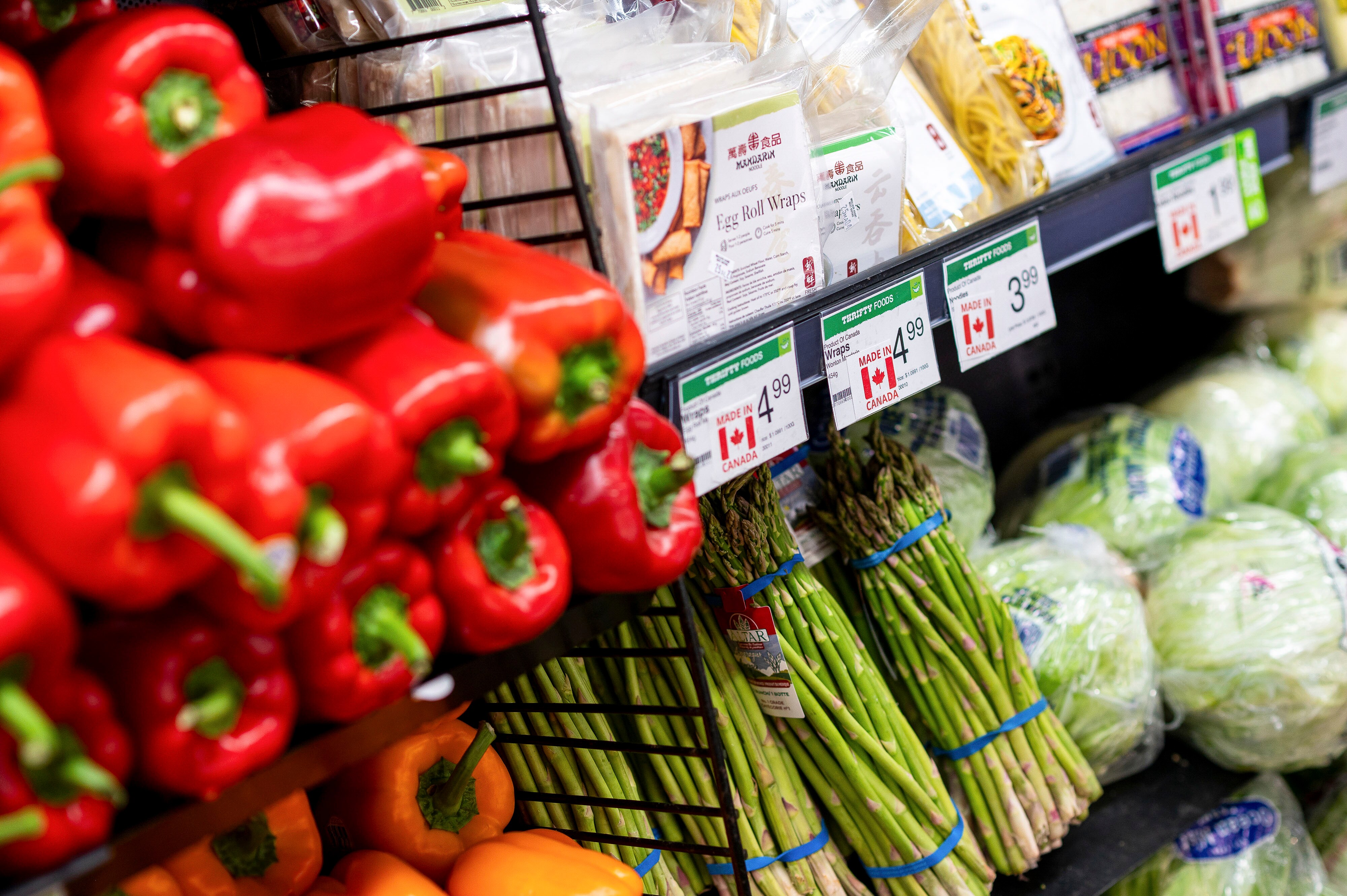
(Bloomberg) -- Inflation in Canada grew at the fastest pace in eight months, after a sales tax holiday that helped keep a lid on food and grocery prices ended in the middle of February.
The consumer price index rose at a 2.6% yearly pace last month, the highest rate since June and up from 1.9% in January, Statistics Canada said Tuesday. The index jumped 1.1% on a monthly basis in February, the fastest pace in nearly three years. Both figures exceeded economist expectations in a Bloomberg survey.
While the second straight acceleration in the headline number is expected, the pace of price gains may still surprise Bank of Canada policymakers, who cut interest rates for the seventh straight meeting last week as Donald Trump's tariff threats hamper business and consumer spending.
But assuming the federal sales tax break hadn't been in place, Canadian inflation would have jumped even higher to 3% in February, right at the upper bound of the bank's target range, from 2.7% a month earlier. Canadian inflation has not been at or above 3% since the end of 2023.

A grocery store in Sidney, British Columbia.
The central bank's two preferred core inflation measures both accelerated to a 2.9% yearly pace, versus 2.7% in January. The three-month moving averages of the figures rose slightly to 3.3%, from 3.2% previously. The bank has said underlying price pressures may be cooler than the measures indicate and it's reviewing them as part of its upcoming mandate renewal.
Other core measures also jumped significantly. Inflation excluding food and energy quickened to 2.9% on a yearly basis, from 2.2% previously, while excluding shelter, prices rose 2% year-over-year from 0.9% the previous month.
Still, tariffs remain the biggest factor for the rate path ahead. Trump has already imposed tariffs on a broad range of Canadian goods, including steel and aluminum, and Canada has retaliated with levies of its own. With more US tariffs and Canadian retaliation expected next month, policymakers must weigh downward pressures on inflation from a weaker economy and upward pressures from higher costs.
Read More: Canada Is Limited in Matching Further US Tariffs, Carney Says
Bank of Canada Governor Tiff Macklem said last week the bank would “proceed carefully” amid the tariff war. Economists are still awaiting more clarity on tariffs before firming up their expectations for the next rate decision on April 16, when policymakers will also update their forecasts.
The sales tax break on a variety of items, making up 10% of the consumer price basket, ended on Feb. 15. Its expiration put upward pressure on costs of food, groceries and alcohol. Restaurant food prices contributed the most to the February acceleration, with a slower decline of 1.4% compared to a drop of 5.1% in January.
Regionally, prices rose at a faster pace in February compared to the previous month in all 10 provinces, with New Brunswick and Ontario seeing the biggest accelerations.
Essential Business Intelligence, Continuous LIVE TV, Sharp Market Insights, Practical Personal Finance Advice and Latest Stories — On NDTV Profit.























